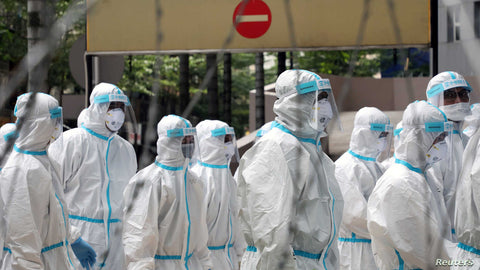Are Covid-19 and coronavirus the same thing, or is there a difference between these two names?
Corona Virus
The World Health Organization (WHO) defines coronaviruses as a large family of viruses that cause illness ranging from the common cold to more severe diseases. with several strains making up the groups including SARS and MERS. However, COVID-19 has proved the most dangerous of them all and remains an urgent threat throughout most of the world.
COVID-19
COVID-19 is a type of Coronavirus, it is an infectious disease caused by a newly discovered coronavirus.
When it emerged, the virus was known as a “novel” strain of the coronavirus family.
Scientists gave the strain an interim name of 2019-nCoV, accounting for the year of discovery, its status as a “novel” virus, and its family name (CoV).
The World Health Organization (WHO) announced the official designation on February 11. COVID-19 stands for Corona Virus Disease 2019.

To prevent the spread of COVID-19:
- Clean your hands often. Use soap and water, or an alcohol-based hand rub.
- Maintain a safe distance from anyone who is coughing or sneezing.
- Don’t touch your eyes, nose, or mouth.
- Cover your nose and mouth with your bent elbow or a tissue when you cough or sneeze.
- Stay home if you feel unwell.
- If you have a fever, a cough, and difficulty breathing, seek medical attention. Call in advance.
- Follow the directions of your local health authority.
- Avoiding unneeded visits to medical facilities allows healthcare systems to operate more effectively, therefore protecting you and others.










